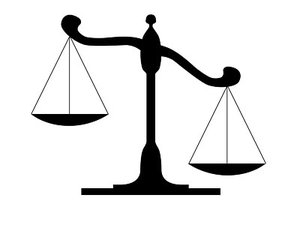Clause 2 - Factual Background
2.1: (Factual Background)
The appellant claims that when he underwent medical treatment for dizziness under Appellee X (referred herein as “Appellee X”) at the S Clinic, established by "Appellee I", he became addicted to benzodiazepines because during the long term and repetitive prescribing of these benzodiazepine type drugs, there was no informed consent, and monitoring of the appellant’s condition was neglected.
A subsequent compensation claim was made against the appellee (based on negligence pertaining to the medical treatment agreement) to pay the sum of 30,928,848 yen, out of which, an interest rate of 5% is to be jointly charged against the sum of 25,350,650 for the period March 25th, 2006 (the day after the formal demand was made) to September 25th, 2008, and against the sum of 30,928,848 yen for the period starting September 26th, 2008 (the day after submission of the Claim Adjustment Form - “Claim Increase”) as delayed damage charges in accordance with civilian law.
The appellant lodged the appeal after the original verdict dismissed the claim.
Top of Page
2.2: (Factual Background)
With regards to the alleged facts in this case, the points of dispute and the claims made by the concerned parties regarding their disputes is as outlined in clause 3 below which includes supplementary or additional arguments made by the parties in this judicial hearing.
They are also the same as entries made in the “Facts and Reasoning” section, clause 2, articles 2 to 4 of the original verdict (Original Verdict – page 2, line 20 to page 6, line 8) and so this is hereby quoted.
Top of Page
2.3: Claims of the Concerned Parties in this Case
2.3.1-A: Appellant's (Claimant's) Claims
Symptoms that were not observed before the commencement of Appellee X’s treatment and that appeared during the treatment include: 1. becoming sensitive to heat, 2. hemorrhoids, 3. palms of hands sweating abnormally, 4. developing what appears to be a mark on the lens of eyes, 5. becoming prone to the development of mouth ulcers.
Out of these, it is possible for 1 (becoming sensitive to heat) to be attributed to tolerance and side-effects. It is possible for 3 (palms of hands sweating abnormally) to be attributed to tolerance and withdrawal. Also, it is possible for 5 (becoming prone to the development of mouth ulcers) to be attributed to benzodiazepine side-effects.
On the other hand, lethargy, legs feeling weak, shortness of breath, dizziness, staggering, tinnitus, nausea, flickering vision, head twitching and pulsating, muscular pain in neck and back and stiff shoulders, pressure in sinus and stress existed prior to Appellee X’s treatment, but disappeared after commencing Appellee X’s treatment, and they had reemerged on or before December 21st, 2000, therefore, it is possible to attribute this as being the result of tolerance.
According to the results based on a close investigation of evidence articles Koh A31 (TN: ORC Hospital - currently STRC Hospital patient file) or Koh A34 (TN: O Medical Center patient file), it cannot be completely ruled out that the appellant did not have “Autonomic Nervous Disorder” prior to consulting Appellee X, but supposing that even if he did, it is highly likely that this was further increased by benzodiazepine dependency.
(TN: “Autonomic Nervous Disorder” is a diagnostic term commonly used in Japan to describe: (A) Psychosomatic symptoms caused by a variety of stress / anxiety conditions, or (B) Any other condition where the Autonomic Nervous System acts in a way that produces symptoms, especially in cases where they are not sure of the cause).
Further, as outlined above, it would be difficult to explain the fact that numerous symptoms disappeared or improved after commencing the treatment, and then later reemerged as being the result of “Autonomic Nervous Disorder”.
Also, after the appellant returned home to New Zealand in April 2001 (TN: Should be March) he experienced an initial worsening of symptoms when undergoing the reduction program with Dr. Judson, and given that he was in the familiar environment of his home country, it can only be concluded that the cause of this was benzodiazepine withdrawal and nothing else.
Top of Page
2.3.1-B: Appellant's (Claimant's) Claims
In 1996 the medical journal evidence article Koh B6 had been published which clearly notes: “We need to be prepared to see a greater than 50% rate of withdrawal symptoms developing in those who take clinical doses of benzodiazepines for more than 4~6 months”.
“It is important to put measures in place to avoid heading towards long term prescribing of anymore than 6 months, and essentially, benzodiazepines should be brought to a controlled end before falling into a state of dependency”
Subsequently, as at the year 2000, knowledge of the possibility that dependency can be formed on clinical doses of benzodiazepines had already been established in Japan.
According to evidence article Koh B6, as long as there are no “specific reasons”, it states that long term prescribing of more than 6 months should be avoided, and that “specific reasons” refers to cases where the benzodiazepines are having a desired effect (cases where improvement can be seen).
In this case, as of late August 2000, during Appellee X’s treatment, there were no particular notable therapeutic effects of the benzodiazepines to be seen, and so, there was no “specific reason”.
In view of this, in order to be able to determine whether Appellee X exhausted all means of his obligation to provide informed consent, at the very least he would need to explain: “There’s the possibility that any number of side-effects may occur, so if you feel something is wrong, please tell me right away” etc. However, there was never any such explanation from Appellee X, and therefore, there was clearly an infringement regarding informed consent.
Further, doctors who prescribe benzodiazepines are obliged to conduct ongoing monitoring including making sure not to prescribe for more than 6 months in cases where no therapeutic effects can be seen.
Subsequently, despite there being no improvement to be seen from the effects of the benzodiazepines, Appellee X prescribed for a period exceeding 6 months, and therefore, Appellee X committed an infringement regarding monitoring.
Top of Page
Notice
Evidence article Koh B6 above refers to paper written by Prof. Murazaki of Kitasato University “Benzodiazepine Dependency on Clinical Doses”
2.3.2-A: Appellee (Defendant) X's Claims
The DSM-IV-TR diagnostic criteria for substance dependency is only applied to case examples where the substance includes cocaine, alcohol, and tobacco, and that the above criteria cannot be applied in such a mechanical way to make a diagnosis in cases where the drugs were used in standard medical treatment. Unlike cocaine and alcohol, clinical doses of benzodiazepines do not cause major clinical type problems or suffering.
Top of Page
2.3.2-B: Appellee (Defendant) X's Claims
The appellant claims that his condition deteriorated between late August 2000 and the end of that same month. However, according to each of the tests and the notes taken on the 21st of that same month, when Appellee X examined the appellant, there were absolutely no abnormalities, and there was no request from the appellant to increase the drug dosages, so there was no marked loss in drug effect.
During Appellee X’s treatment, there was no increase in the drug dosages, and there was no sign of tolerance resulting in a blunted effect of the set prescriptions given to the appellant.
On December 21st of the same year, just before the end of Appellee X’s final treatment, Dr. M, who examined the appellant, looked over the appellant’s list of symptoms and did not give recognition to any harmful effects caused by benzodiazepines, and he too prescribed benzodiazepines just as Appellee X had done.
Further, during Dr. M’s treatment, the appellant did not end up taking Lexotan because he was getting enough sleep, so there was no worsening of the sleep disturbance that Dr. Judson used as his basis for tolerance, and the appellant did not develop tolerance to benzodiazepines during Appellee X’s treatment.
Further, the appellant claims that he developed new symptoms between October and December of the same year. However, on every occasion Appellee X conducted detailed history taking and a range of tests, but there was nothing to suggest that the appellant had developed any new symptoms that were any different in nature to those he had originally.
On the contrary, according to the objective results of the body gravity centre movement testing device, the staggering had improved since first presentation. Also, even to put it in general terms, in cases where anxiolytic drugs are prescribed for less than 8 months, the chances in withdrawal occurring are no more than 5%.
The only drugs that Appellee X prescribed that can connect to benzodiazepine receptors are Rivotril (TN: Clonazepam) and Contol (TN:Chlordiazepoxide). As these drugs were prescribed for no more than just a little under 7 months at half the dosage stipulated in the package insert, neither the prescription amount nor the prescription period were enough to cause withdrawal symptoms.
None of the symptoms apparently confirmed by Dr. Judson during the reduction program have been backed by any kind of objective testing, and the indeterminate symptoms (dizziness, anxiety, headaches, tired eyes, becoming sensitive to light, muscular pain in neck and back, head pulsating more than usual etc) weren’t any different constitutionally to those that were already present before Appellee X’s treatment. These were all symptoms of “Autonomic Nervous Disorder” and neurosis. The appellant’s primary illness was exactly that.
Top of Page

Justice or Not?
- I think the ultimate discrepancy in the High Court Verdict is that the Judge failed to rule out the fact I was dependent in terms of the DSM-IV-TR (worldwide recognized diagnostic standard) which formed the overall basis for the entire case.
- Although the Judge addressed two of the criteria in tolerance (criteria 1) and withdrawal (criteria 2), albeit without any direct reference to the DSM-IV-TR itself, he completely failed to address the other three that were being claimed – effectively leaving them standing.

The primary language of this website is English. Japanese appears as translations only (except for some original court documents).
These translations have been done by many different translators including me. Therefore, there are differences in quality and styles.
Please understand that I am not native Japanese and subsequently there are parts that may sound unnatural in Japanese.
“If any drug over time is going to just rob you of your identity [leading to] long, long term disaster, it has to be benzodiazepines.”

Dr John Marsden,
Institute of Psychiatry, London
November 1, 2007
“Benzos are responsible for more pain, unhappiness and damage than anything else in our society.”

Phil Woolas MP,
Deputy Leader of the House of Commons,
Oldham Chronicle, February 12, 2004
“The benzodiazepines are probably the most addictive drugs ever created and the vast army of enthusiastic doctors who prescribed these drugs by the tonne have created the world's largest drug addiction problem.”

The Drugs Myth, 1992
“If there's a pill, then pharmaceutical companies will find a disease for it.”

Jeremy Laurance,
The Independent, April 17, 2002.
“To rely on the drug companies for unbiased evaluations of their products makes about as much sense as relying on beer companies to teach us about alcoholism.”

Marcia Angell MD
(Former) Executive Editor New England Journal of Medicine
“It is more difficult to withdraw people from benzodiazepines than it is from heroin.”

Professor Malcolm H Lader
Institute of Psychiatry London
BBC Radio 4, Face The Facts
March 16, 1999







